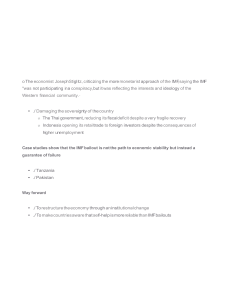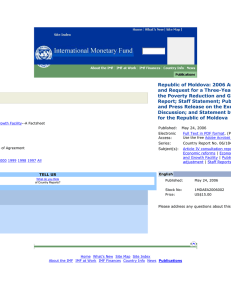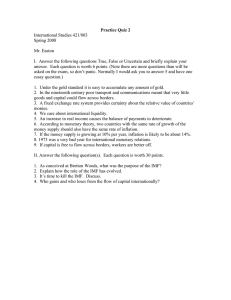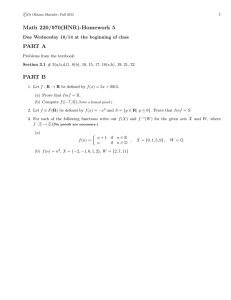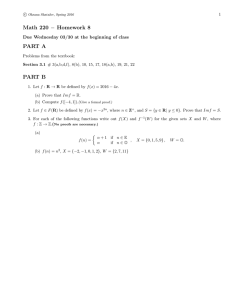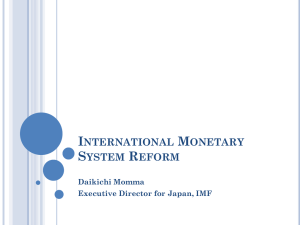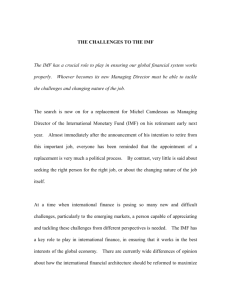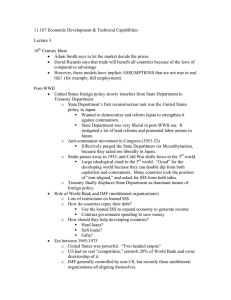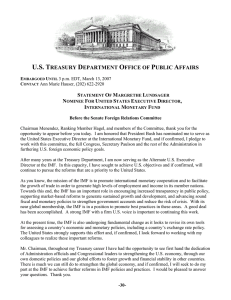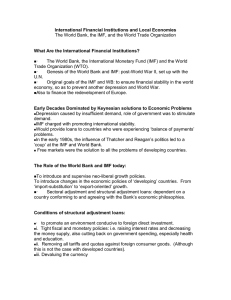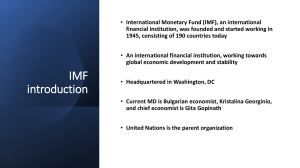Document 15930762
advertisement
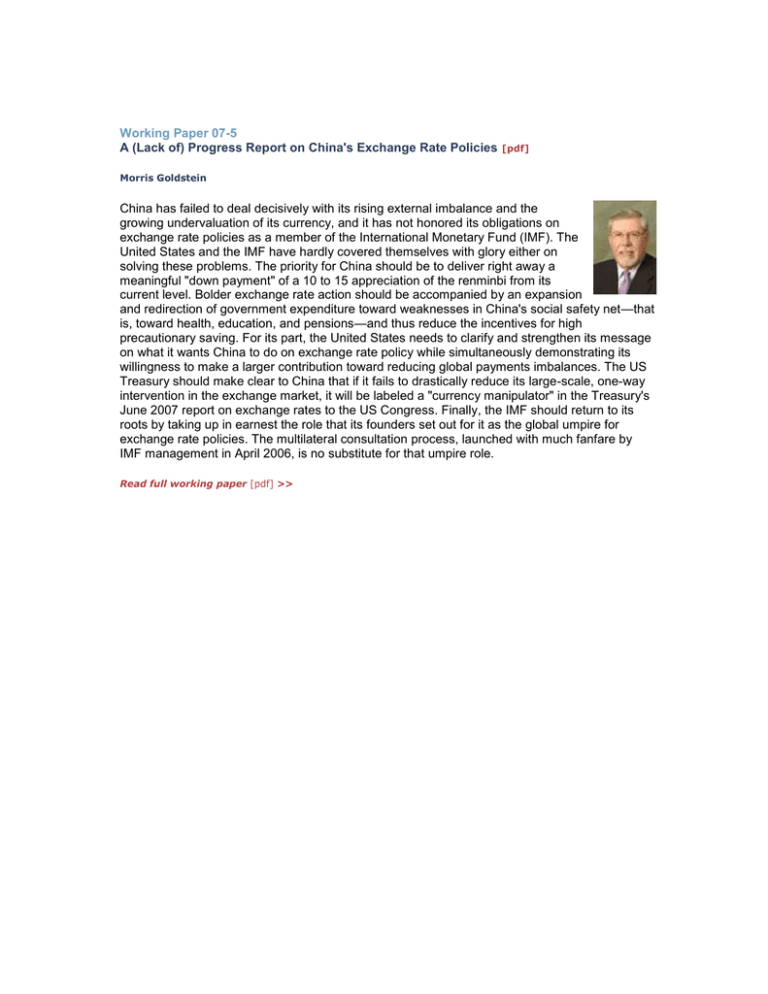
Working Paper 07-5 A (Lack of) Progress Report on China's Exchange Rate Policies [pdf] Morris Goldstein China has failed to deal decisively with its rising external imbalance and the growing undervaluation of its currency, and it has not honored its obligations on exchange rate policies as a member of the International Monetary Fund (IMF). The United States and the IMF have hardly covered themselves with glory either on solving these problems. The priority for China should be to deliver right away a meaningful "down payment" of a 10 to 15 appreciation of the renminbi from its current level. Bolder exchange rate action should be accompanied by an expansion and redirection of government expenditure toward weaknesses in China's social safety net—that is, toward health, education, and pensions—and thus reduce the incentives for high precautionary saving. For its part, the United States needs to clarify and strengthen its message on what it wants China to do on exchange rate policy while simultaneously demonstrating its willingness to make a larger contribution toward reducing global payments imbalances. The US Treasury should make clear to China that if it fails to drastically reduce its large-scale, one-way intervention in the exchange market, it will be labeled a "currency manipulator" in the Treasury's June 2007 report on exchange rates to the US Congress. Finally, the IMF should return to its roots by taking up in earnest the role that its founders set out for it as the global umpire for exchange rate policies. The multilateral consultation process, launched with much fanfare by IMF management in April 2006, is no substitute for that umpire role. Read full working paper [pdf] >>
